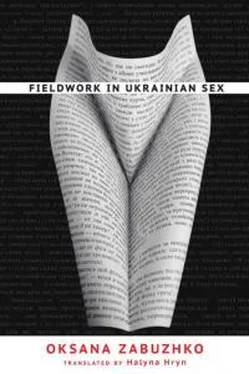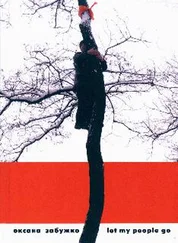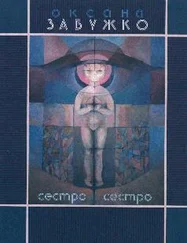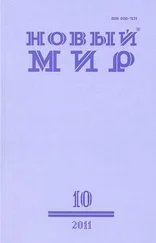And on that same night, as soon as she found herself alone (she felt better!), she finally, for the first time since his arrival, had a real dream: at first, still on the cusp of being awake and falling asleep, she had the one of him walking away from her on a narrow plank heading downward, but then there suddenly came a crowded, erotic nightmare: invisible hands, many hands caressing her from all sides—persistently, hotly, suffocatingly, and she had to gather all her strength to break free—only to turn up in a huge, empty, echoing hall with a high, vaulted ceilings like backstage at the opera, something akin to constructivist stage props were cluttering up the hall—carelessly draped pedestals, plinths of papier-mâché, some kind of stepladders, in a nave that looked like a dark cave stood a high podium, and flying in from all sides, with the whistle and rustle of wings and capes, settling on all those raised surfaces were the Princes and Princesses of Darkness—black vestments flitted by, out of the corner of her eye she spotted some chicken claws coming out of huge paws overgrown with shaggy reddish wool that had dug into a protruding section of a wall, but her main attention was glued to an incredibly tall—you couldn’t even make out its face!—figure dressed in a black cassock standing at the podium: is that not the Grand Prince himself, she wondered, who decided to reveal himself? None of this was in the slightest bit frightening—despite all of the striking external trappings, the demonic assembly constituted no clear threat, rather it gave the impression of a ritual somewhat reminiscent of a Brezhnev-era party meeting and in fact treated her with a kind of friendly acceptance, taking her into its circle, accepting her as one of its own—and, walking up and down that filled hall from one end to the other she began, crossing herself confidently, to recite “Our Father,” and they obediently transformed themselves into whorls of neon-blue vapor and flew off with a pyrotechnic hiss—only a gigantic cat, turning into a neon-blue shadow of a cat, hopped around from pedestal to pedestal for some time still before he too went up in smoke, and then there was still that panting gnome—with black wings, with a ski cap and simpleton’s round face (clown nose!) who swooped in late and, not catching on to what’s happening, lashed out at her, “What, hasn’t it started yet?”—for him especially she repeated “Our Father” and he, after putting up some minimal resistance for appearances’ sake, and likewise not presenting himself as anything too scary as he lunged for her a few times, had to, in the end, what else was there to do, also turn into a neon-blue ball and, releasing a carefree whistle, fly away. In that dream she first felt a waft of relief —as though she had returned back to herself and, all alone in the now emptied hall, she thought, no—she realized: so it’s not really serious—this suicide stuff. At least, it wasn’t yet .
Ladies and gentlemen, I feel a little awkward raising this issue now—obviously, it’s more suited for a sermon than a serious academic paper, and I can see you, one after another, leaving the auditorium with sarcastically curled lips: “crazy stuff,” typical Slavic mysticism, your auditorium seats noisily snapping back—just a moment, I’m asking for just one more minute of your attention, I’ve even prepared, just to keep things comme il faut , a quotation for you here—I apologize that it’s not from Derrida, Foucault, or Lacan but quite the contrary, from Jacob Böhme: when Satan was asked why he left heaven, he replied that he wanted to be an author .
Ladies and gentlemen, in the country which from its inception was a human creation and where the authorship of each person over his or her own fate is the fundamental postulate of education (I have here a newspaper clipping: an elderly millionaire couple, the Browns—Richard, seventy-nine years old, and Helen, seventy-six—killed themselves by carbon dioxide poisoning in their garage, prior to that bequeathing their entire estate—ten million dollars, nothing to sneeze at!—to Christian charity and sending explanatory letters to their friends: both were gravely ill and after considering everything rationally they decided that rather than squandering the money they worked so hard for their whole lives on doctors and medical care it would be better to help young people get on their feet—will they also be buried outside the perimeter of the church cemetery, or will those who derive benefit from their millions intercede with their prayers to God and ultimately save their souls? It’s a murky business—this dispensing with yourself as you see fit: there was a certain Father Kolbe in Auschwitz who during one of the “purges” there offered himself up to die in place of a certain Pole, because that man had two sons at home—the SS officer smirked and allowed the exchange, and that man survived and returned to his family in Warsaw only to find out that his two sons were killed during a bombardment, how about that!—ah, Father Kolbe, you interfered in something that wasn’t your business, you wanted to become an author—and you broke the rules of the game, because that man was meant to die and who knows, if you hadn’t meddled, his boys might still be alive today, and I am seriously concerned, that’s right, don’t laugh—I am concerned about the Browns’ millions—will they really bring someone a luckier lot in life, or will, God forbid, one of those Brown fellowship recipients burn to a crisp in a chemical fire in the research lab where he ends up at their expense, or will yet another one, after completing his studies in Italy and becoming a renowned singer, after years of success and glory, slit his throat once he loses his voice? It’s a shame, really, that your country has never known a proper war—war allows you to understand many things about life and death, because individual fates, no matter how telling, generally never teach you anything; a year ago, I remember, the latest news carried a hilarious, if you allow me to call it that, story: in New York some guy threw himself out of the window of a skyscraper, but landed on the roof of a parked automobile whole and unharmed, and, unwilling to accept defeat—obviously, he had been taught in childhood to get what he wanted no matter what—headed back up to that hundred and umpteenth floor and, if you can imagine, threw himself out again, this time breaking an arm, a leg, and something else, but still wasn’t able, the poor sucker, to settle scores with his life—let’s admit, ladies and gentlemen, that somewhere in the depths of our souls we are a bit annoyed by the arrogance of this bastard—just like we are by the burglar who tries to break down the door when he can’t pick the lock, or by the spoiled child who stamps its foot and screams “gimme!”—so he didn’t succeed, it’s what he deserves)—in this country, ladies and gentlemen, with its increasing proliferation of satanic sects in the underground and psychiatric offices on the surface, might it not be time to stop and ponder over the question of authorial rights —over what we truly can do, and what we shouldn’t?
Wanting to be an author—to create—is to raise your hand to the exclusive prerogative of God. Because none of us truly creates, ladies and gentlemen—we all remember the example about creative thinking from our psychology textbooks—a mermaid, half woman and half fish—what poverty of thought, if you really consider it, the imagination of a butcher—cut a piece from here and a piece from there, glue it together and we’re all proud: we’re artists! But what about ex nihilo —have you tried that? Can’t do it? That’s the point… All that we’re given—like children toys—are ready-cut slivers of reality, fragments, details, colored pieces of some large, unsolvable puzzle, and we crawl over fussing with them, without raising our eyes, touching them, licking them, smelling them, a completely innocent and pleasant occupation—except that the point is that every once in a while (ho, you wouldn’t believe how often, actually, and it doesn’t necessarily take a genius) we manage to put a few of those puzzle pieces together according to some greater, taken from who-knows-where, invisible-to-the-naked-eye plan , in which one can recognize the pulsation of independent, as if naturally born, life. And that’s when our authorial (ha-ha!) pride switches on: we puff out our chests, ruffle our feathers, and imagine ourselves to be creators—whereas all that has happened is that the curtain was pulled back for a second and through the slit we saw a tiny tip of the original general plan , the same one according to which the world was once created—from nothing, complete and beautiful, the one from which humanity backed away (when? at which prehistoric turn? in which Pyrenees cave?), and the memory of it (so evanescent! so distressingly easily lost! and yet—how would we live if we were to lose even that?), of that original, blinding completeness is preserved, besides religion, only in art and in love.
Читать дальше




![Оксана Забужко - Тут могла б бути ваша реклама [збірник]](/books/29264/oksana-zabuzhko-tut-mogla-b-buti-vasha-reklama-zbІr-thumb.webp)

![Оксана Забужко - З мапи книг і людей [Збірка есеїстики]](/books/203319/oksana-zabuzhko-z-mapi-knig-І-lyudej-zbІrka-eseЇsti-thumb.webp)


